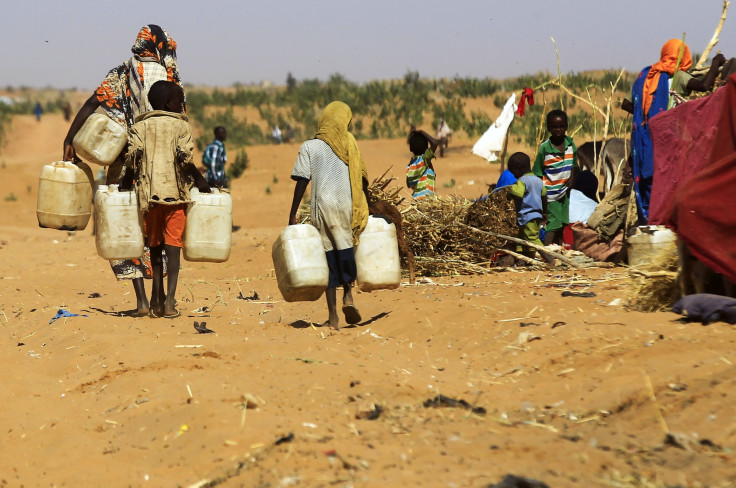Climate Change Will Make Sudan 'Uninhabitable' As Global Warming Dries Crops And Threatens Rural Communities

The beige and expansive deserts of Sudan aren’t exactly known for their hospitality but climate change is only going to make things worse there over the coming century for the 40 million people who call the African nation home.
As climate change effects become more pronounced over the next 100 years, severe droughts in the region are going to cut water availability for agriculture, livestock and people in a country that is already squeezing its resources to the last drop. There were, according to a United Nations Office of Coordination on Human Affairs report released this month, already in 2016 1.9 million people living in those reduced conditions for agriculture and livestock while another 3.2 million people are expected to encounter water shortages.
“North Africa is already hot and is strongly increasing in temperature. At some point in this century, part of the region will become uninhabitable,” Jos Lelieveld, a climate scientist, told CNN in an article published Thursday.
Sudan isn’t in a great starting position. On the Economist’s Global Food Security Index, it ranks 98th out of 113 countries. That adds up to about 4.6 million people in the country facing food insecurity. That figure was expected to be dwarfed by climate change effects in the future when as much as 70 percent of crop yields could decline within the next 35 years. While those crop yields flounder, rural areas are expected to be hit hardest by temperature increases as high as three degrees Celsius within the next 50 years.
Sudan is not the only country that will be hit by climate change and, should Sudanese people flee the area, would not be the only source of climate refugees in the future. Climate change trends have led leading military officials to warn that a refugee crisis of “unimaginable scale” will be experienced globally as people flee drought stricken and uninhabitable areas.
© Copyright IBTimes 2024. All rights reserved.






















